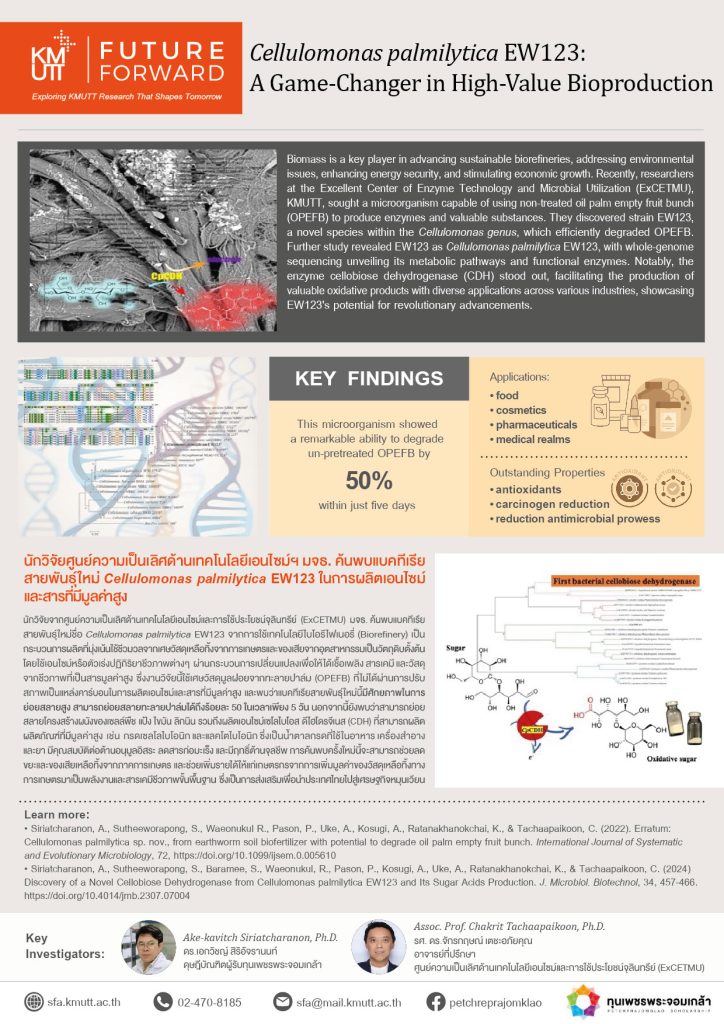Biomass is a key player in advancing sustainable biorefineries, addressing environmental issues, enhancing energy security, and stimulating economic growth. Recently, researchers at the Excellent Center of Enzyme Technology and Microbial Utilization (ExCETMU), KMUTT, sought a microorganism capable of using non-treated oil palm empty fruit bunch (OPEFB) to produce enzymes and valuable substances. They discovered strain EW123, a novel species within the 𝘊𝘦𝘭𝘭𝘶𝘭𝘰𝘮𝘰𝘯𝘢𝘴 𝘨𝘦𝘯𝘶𝘴, which efficiently degraded OPEFB. Further study revealed EW123 as 𝘊𝘦𝘭𝘭𝘶𝘭𝘰𝘮𝘰𝘯𝘢𝘴 𝘱𝘢𝘭𝘮𝘪𝘭𝘺𝘵𝘪𝘤𝘢 EW123, with whole-genome sequencing unveiling its metabolic pathways and functional enzymes. Notably, the enzyme cellobiose dehydrogenase (CDH) stood out, facilitating the production of valuable oxidative products with diverse applications across various industries, showcasing EW123’s potential for revolutionary advancements.
𝗞𝗘𝗬 𝗙𝗜𝗡𝗗𝗜𝗡𝗚𝗦
This microorganism showed a remarkable ability to degrade un-pretreated OPEFB by 𝟱𝟬% within just five days
𝐀𝐩𝐩𝐥𝐢𝐜𝐚𝐭𝐢𝐨𝐧𝐬:
- food
- cosmetics
- pharmaceuticals
- medical realms
𝐎𝐮𝐭𝐬𝐭𝐚𝐧𝐝𝐢𝐧𝐠 𝐏𝐫𝐨𝐩𝐞𝐫𝐭𝐢𝐞𝐬
- antioxidants
- carcinogen reduction
- reduction antimicrobial prowess
𝗙𝗨𝗧𝗨𝗥𝗘 𝗙𝗢𝗥𝗪𝗔𝗥𝗗 ❯❯
Exploring KMUTT Research That Shapes Tomorrow


